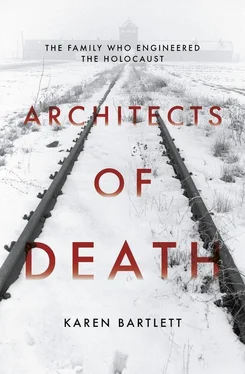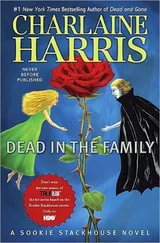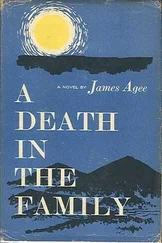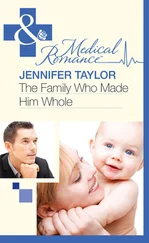We can show here how easy it is for a human being to ignore his responsibility towards his fellow human beings in his daily work. If I go to the memorial in Buchenwald I cannot identify myself with the SS, because I would never have become a member. But I can relate to people who harm other people by doing their normal jobs. This is happening all the time. Visitors are motivated to think about this. Processes that are completely normal within any companies have led to atrocities. [156] Author interview with Annegret Schüle.
A lifetime has passed since the men of Topf and Sons sat at their desks and dispassionately planned murder, but the memorial poses an eternal question: how would we act today?
‘I inherited the name. I did not inherit the company, fortunately. Even so, I felt an obligation. As a child I bathed in the glory of being a Topf, and now I feel I have to tell the horrible story of their infamy. I have to make my contribution. That is my responsibility.’ [157] Author interview with Hartmut Topf.
HARTMUT TOPF, 2017
Hartmut Topf’s long involvement with the company that bore his name began more than sixty years ago – but in a surprising development it appears that he was not the only member of the family to discover the truth about Topf and Sons in a darkened cinema. In another town in Europe, a young boy was also watching the weekly newsreel when he saw the logo Topf and Sons on the oven doors of a concentration camp. This young boy had grown up believing he was the son of Ludwig Topf – and he was a child no one in the family knew existed. Florian, as he wants to be known, was born in 1936, the result of a brief encounter at a party in Munich between Ludwig and his mother, who was a young student of art history.
‘I knew almost nothing at all about my father, just his name and how they’d met – and even that I didn’t know at first. Other than that, my mother was totally clam-like on the subject, which put me off asking questions,’ Florian says.
She’d grown up in a deeply Catholic family and giving birth out of wedlock carried a huge stigma. Because of this, she moved away from Munich before I was born and gave birth to me in Milan, where no one knew her. I had my mother’s surname and I don’t think she tried to get Ludwig Topf to acknowledge paternity. I don’t know why she didn’t, maybe because she knew he was from a renowned industrial company and didn’t want to embarrass him.
Florian says he grew up desperate for a father, even as an adult he often invented names for his father when dealing with the authorities. In the aftermath of the war, life was unstable and unpredictable in Europe – Florian attended six different primary schools in the space of four years, he then went on to study at a grammar school, followed by a stint at a boarding school in Germany. It was hard to be close to his mother, he says, when she was working and he spent so little time with her. In the holidays he often lived with his grandparents: ‘The absence of a father lingered over my whole childhood and spoilt it. I desperately missed having the sense of a normal home life, and I was very conscious of not knowing anything about my father.’
Then, as a teenager, he saw the name Topf and Sons on screen for the first time.
I was watching the Wochenschau weekly news programme that came on before the film at the local cinema, and I saw the report on the concentration camps with the ‘Topf and Sons’ plaque on the cremation furnace. I can’t actually remember whether I asked my mother about it at the time, but she would always fall silent at the mention of my father so I always found it very difficult to raise the subject.
Florian’s maternal family were doctors, but even though his grandfather was labelled a ‘Jew doctor’ for treating Jewish patients after Kristallnacht, Florian is still inclined to excuse Ludwig Topf’s role in the Holocaust:
I don’t think he was a Nazi; I think he acted out of necessity and pragmatism, and a sense of responsibility for the company’s workers. Yes, he collaborated, but I’ve read both Jean-Claude Pressac’s and Annegret Schüle’s books and I think that the collusion was pragmatic, not from the heart. They had just wanted to be the best engineers and do the best by their business, and they hadn’t really thought much beyond that. It can’t have been easy for them, and when you run a company of that size, a certain amount of collaboration would have been inevitable. The work for the concentration camps only accounted for a very small percentage of the company’s turnover, and was therefore commercially insignificant.
Having searched all of his life for his father, Florian now finds it hard to believe that Ludwig Topf was a bad person. Although his mother had no papers or photos relating to the Topfs, Florian has seen Ludwig’s photo published in books – and thinks he looks like a nice easy-going sort of man, although, he adds, ‘In order to have taken his own life, he must have been a very disappointed and disillusioned person.’
Before retiring in 2015, Florian had a long career in business and industry, working in England, Belgium and Switzerland. Very much a family man, he married in 1967 and had three children and nine grandchildren. It was his children who encouraged him to find out more about the Topf family, and he recently met Hartmut for the first time when they agreed to conduct a DNA test. Asked how his children feel about being possible descendants of the Topf family Florian says: ‘They feel proud. They knew my mother came from a family of doctors, and were proud of that, but they feel that an industrial family – especially such a major one – is even better.’ [158] Author interview with Florian.
Florian is not the only son in this book to be seeking a missing father: Ludwig and Ernst Wolfgang Topf lived, unsuccessfully, in the shadow of theirs; Hartmut sought to redeem the family name for his ‘good’ father; while Udo Braun remained unreconciled with Gustav Braun to the end.
The question of family legacy is a large one. It is something that even Hartmut, who has carried out so much work on restitution and remembrance, struggles with. Visiting Erfurt in September 2017, he explains that he now believes Topf and Sons was ‘partly guilty’ – partly because, as Florian also states, the Topf family only made a small financial profit from their work on the Holocaust. Standing in front of the Topf and Sons’ ovens at Buchenwald, and confronted with the visible evidence of the crime, he seems unsure about how to express his emotions – instead he tells a long story about the death of a family friend in Berlin. When the friend died, Hartmut’s son, Till, asked him why he didn’t appear to be sad. Hartmut told his son that he had known his friend’s death was coming and he had grieved for a long time in his own way.
‘It’s a sad story,’ he says about the role Topf and Sons played in the Holocaust.
And it’s a great pity that we have to deal with all those atrocities and crimes, in Europe, in our country and, of course, in our family. But this is a general grief, it’s not a personal thing. I am only one of those catalysts to keep the memory alive or to ask people, at least from time to time, to reflect on that side of our history.
He adds: ‘We should be decent. I am not the protagonist of this story. I always say to people I am a catalyst and I’ve been working on for this for so many years now, but please don’t make me an angel or a hero – I’m not.’ [159] Author interview with Hartmut Topf.
The story of Topf and Sons may be one without heroes, but Hartmut Topf is undoubtedly responsible for ensuring that the company is held accountable to history for its crimes. Through the Topf archives, and the work of historians, we can understand how one small group of men were driven by very human emotions. Ludwig and Ernst Wolfgang Topf were weak and greedy men, prepared to do anything to cement their precarious positions at the head of their father’s company. They knew that in doing so they were developing technology that would enable the mass murder of millions of innocent people. This did not deter them in the least – and their collaboration in the Holocaust would be something that Ernst Wolfgang Topf would lie about for the rest of his life. They bear the ultimate responsibility for their crimes.
Читать дальше












